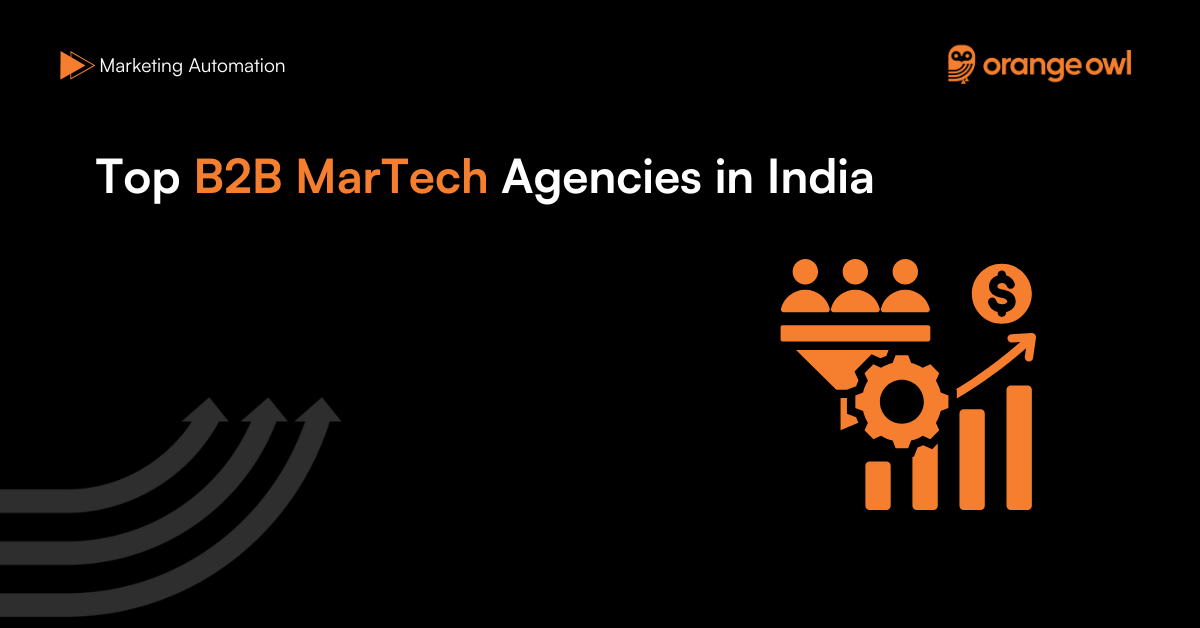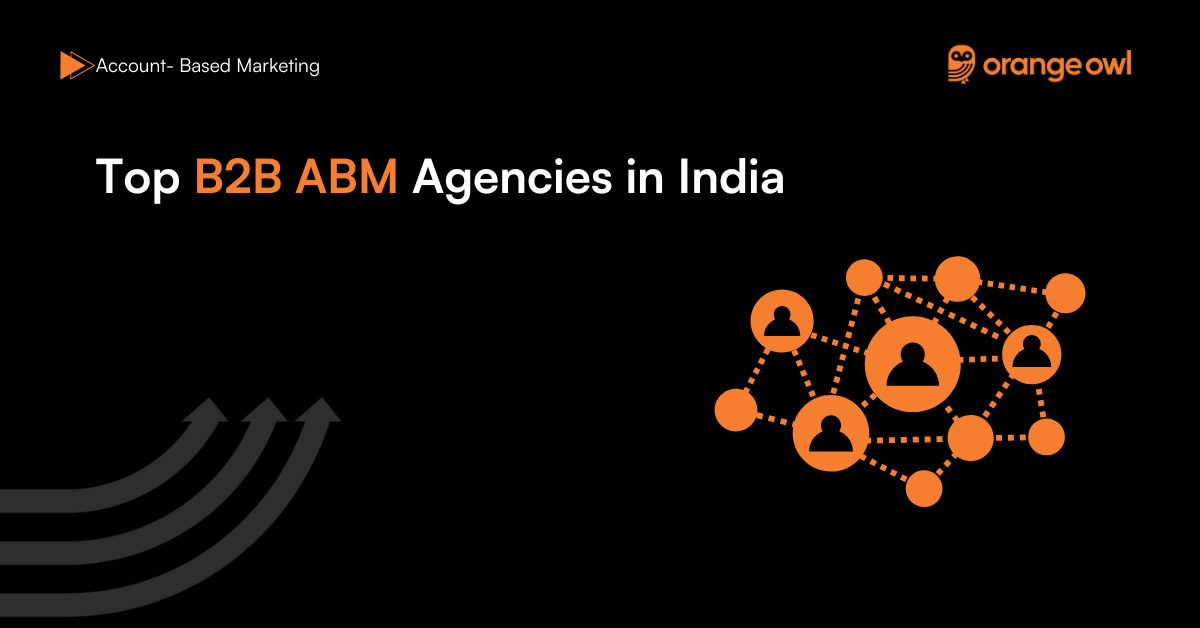Top 10 MVP Development Companies in 2025 for Startups
Vivek Goel
August 29, 2025
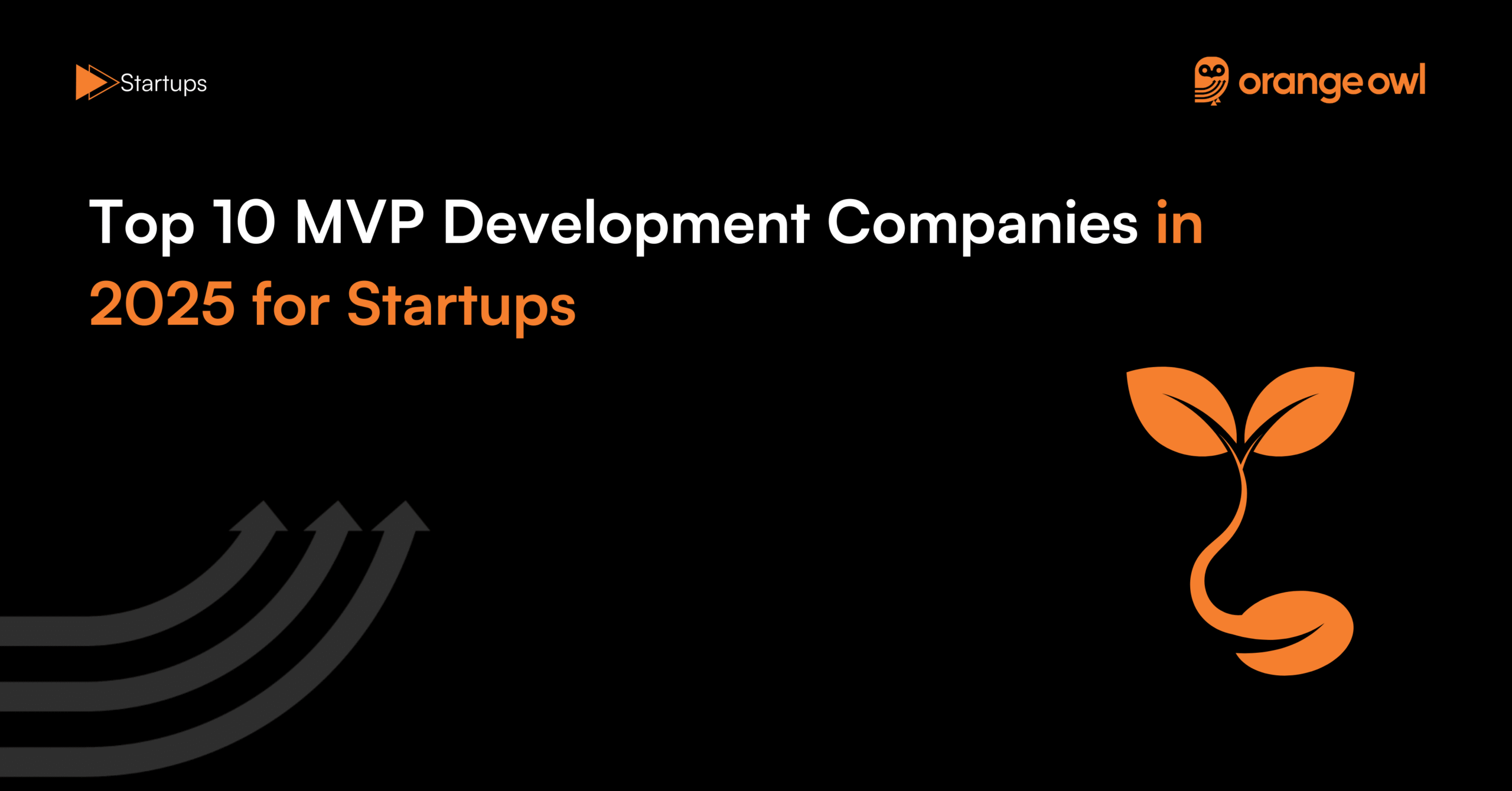
Table of Contents
Introduction
Maya, a brilliant Head of Marketing, identified a major gap in the market: a tool to streamline the chaotic process of influencer marketing. She had the perfect idea, born from years of data-driven experience.
But then, she hit the wall. Maya understood Go-to-Market strategies and customer acquisition costs, not APIs and databases. The traditional, expensive path of hiring engineers to build a product for a year felt like a massive gamble. What if she built something nobody wanted?
This is where the Minimum Viable Product (MVP) changes the game for non-technical founders. Instead of thinking “build a product,” Maya could reframe it as “run the ultimate marketing experiment.”
An MVP isn’t just a basic app; it’s a Maximum Validation Product. It’s the fastest way to test the core hypothesis—”Will people actually use and pay for this?”—by getting a working version into the hands of real customers. It turns assumptions into actionable data.
To run this experiment, Maya didn’t just need coders. She needed a strategic MVP Development Partner who understood that the technology serves the market—a team as obsessed with user engagement and retention as she was.
The MVP: A Marketer’s Secret Weapon
For a founder with a marketing background, an MVP is the most powerful tool in the arsenal. It transforms abstract ideas into tangible data and validates a business model from the ground up.
1. Market Validation Beyond the Landing Page
A “Coming Soon” page with an email signup form tests intent. An MVP tests behavior. It answers the crucial questions: Do users complete the onboarding? Do they use the core feature multiple times? Do they invite others? This is real, actionable data that proves your value proposition in a way no survey or waitlist ever could. You’re not just asking if people have a problem; you’re seeing if your solution is the one they’ll actively choose.
2. Building a Brand and Community from Day One
Marketing is about building relationships, and an MVP is your first handshake with your target audience. Your initial users are more than data points; they are your founding members. By launching an MVP, you start a conversation, gathering invaluable feedback, testimonials, and user-generated content. These early adopters become your most passionate evangelists, creating the authentic word-of-mouth buzz that money can’t buy.
3. A Data-Driven Roadmap, Not a Guesswork-Driven One
As a marketer, you rely on data to optimize campaigns. An MVP allows you to apply that same data-driven rigor to product development. By integrating analytics from day one, you can see exactly which features resonate and where users get stuck. This feedback loop allows you to guide the product roadmap with confidence, ensuring you’re building features that drive engagement and retention, not just features that sound good in a meeting.
4. The Ultimate Pitching Tool for Investors and PR
Imagine walking into a venture capitalist’s office. You can show them a slide deck with projections, or you can show them a working product with a dashboard of active, engaged users. An MVP with even a small user base de-risks the entire investment. It proves you can not only conceive an idea but also execute it and attract a market. This same traction is what makes your story compelling to journalists and influencers, landing you the early press that builds momentum.
Choosing the right partner to build this marketing engine is paramount. You need a team that can translate your vision for a seamless user journey into a robust technical reality.
Top 10 MVP Development Companies for Marketing-Led Startups in 2025
Here are the top 10 companies that understand the intersection of marketing, business strategy, and technology, making them ideal partners for founders like Maya.
1. Tericsoft
Tericsoft stands out by positioning itself as a true strategic technology partner, which is exactly what a marketing-led founder needs. Their AI-powered development approach is designed for speed, allowing for rapid testing of market hypotheses. They don’t just build what you ask for; they help shape the product strategy to ensure it aligns with your ultimate business goals.
- Foundation Year: 2018
- Founders: Abdul Rahman Janoo and Anand Reddy KS
- Location: Hyderabad, Telangana India/ US
- Services: AI-Powered MVP Development, CTO as a Service, Product Strategy, Scalable Web & Mobile Apps, AI Services.
- What Clients Appreciate: Marketers particularly value their CTO as a Service offering. It bridges the gap between marketing vision and technical execution, providing the strategic oversight needed to make smart, scalable technology decisions without having to hire a full-time CTO. Clients praise their ability to function as a seamless extension of the founding team, focusing on building a product that can handle the traffic spike from a successful launch campaign and scale for future growth.
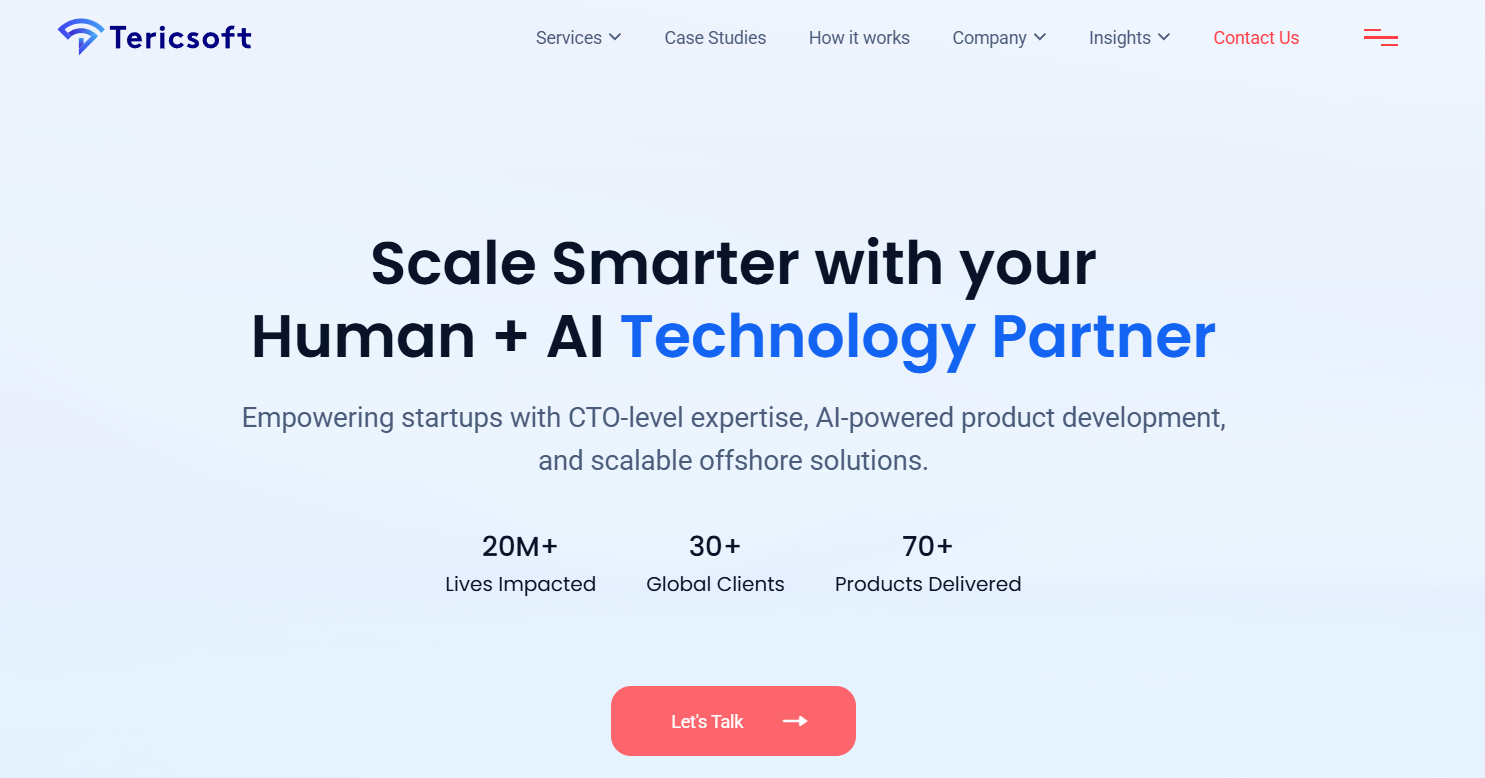
2. Thoughtbot
Thoughtbot is a legendary design and development consultancy with a deep-rooted belief in building quality products the right way. Their process is transparent, collaborative, and intensely focused on user experience, a critical component for achieving product-market fit.
- Foundation Year: 2003
- Founder: Chad Pytel
- Location: Global (Remote-first with studios in major US & UK cities)
- Services: MVP Development, Product Design Sprints, Web & Mobile Development (especially strong in Ruby on Rails and React), Team Augmentation.
- What Clients Appreciate: Marketers love Thoughtbot’s product design sprint process. It’s a hyper-focused, one-week engagement that validates an idea and produces a clickable prototype before a single line of code is written. This saves immense time and money, ensuring the user journey is validated early. Their obsession with quality code means the final product is reliable and can be built upon for years.
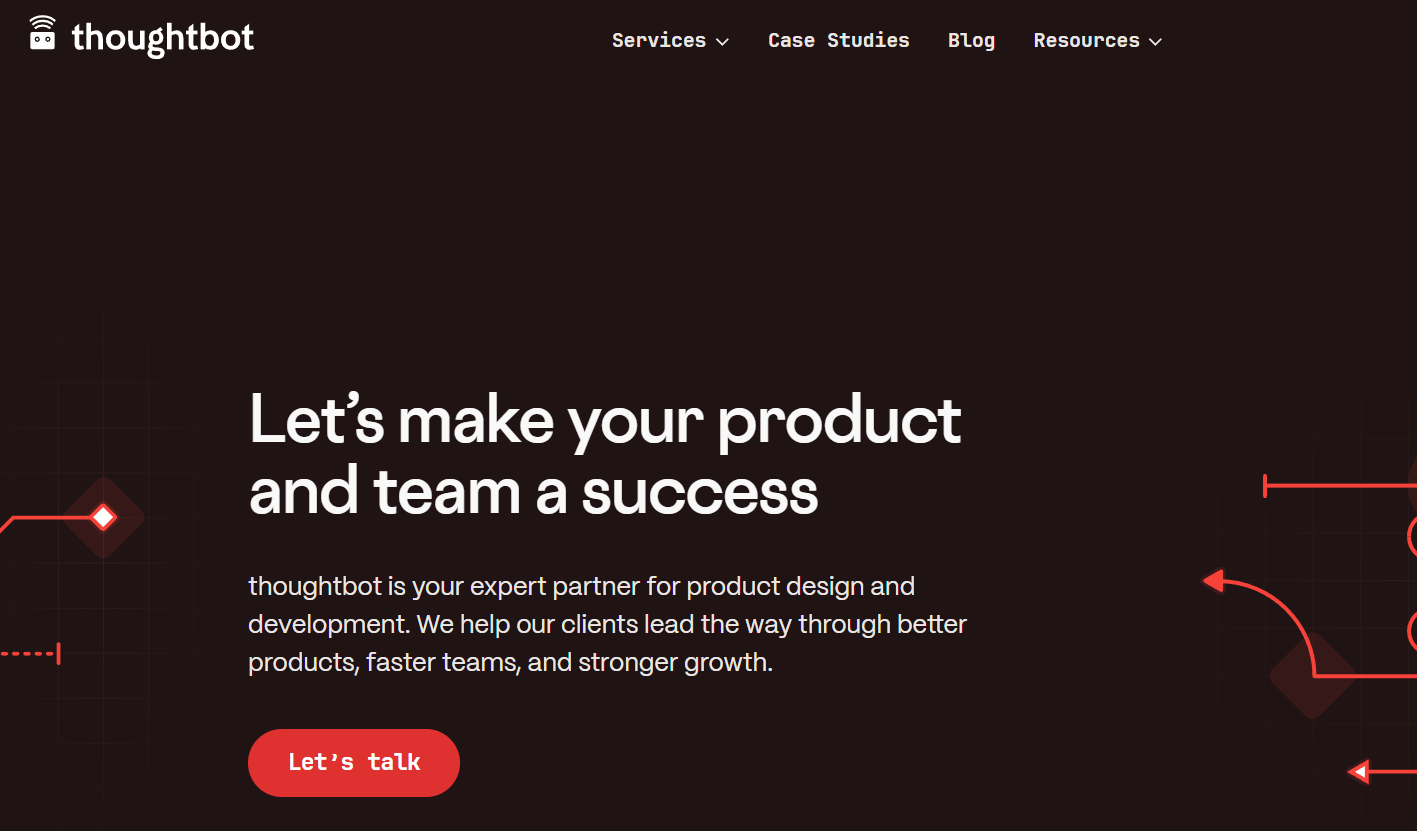
3. Netguru
Netguru is a large, well-respected software development and consulting company known for its ability to handle complex projects and deliver beautiful, functional products. They have a strong emphasis on design thinking and a consultative approach.
- Foundation Year: 2008
- Founders: Wiktor Schmidt, Jakub Filipowski
- Location: Poznań, Poland (Operates Globally)
- Services: Custom Software Development, Product Design, Web & Mobile Development, Machine Learning & AI.
- What Clients Appreciate: Clients, especially marketers, praise Netguru’s world-class UI/UX design capabilities. They understand that a great product must not only work well but also feel intuitive and delightful to use. This focus on user experience directly impacts key marketing metrics like user retention, session duration, and Net Promoter Score (NPS).

4. STRV
STRV is a premier software design and engineering agency with a “product-first” mentality. They have a reputation for working with top-tier startups and established brands, delivering sleek, high-performance applications.
- Foundation Year: 2004
- Founders: Lubo Smid, Martin Stava, Pavel Zeifart, David Semerad
- Location: Prague, Czech Republic / Los Angeles, USA
- Services: Mobile App Development (iOS & Android), Web Development, Product Strategy, UI/UX Design.
- What Clients Appreciate: Marketers value STRV’s focus on product-led growth. They build apps that are so polished and intuitive that the product itself becomes a key driver of acquisition. Their portfolio is filled with consumer-facing apps that have achieved significant organic growth, demonstrating their understanding of how to build for virality and user satisfaction.
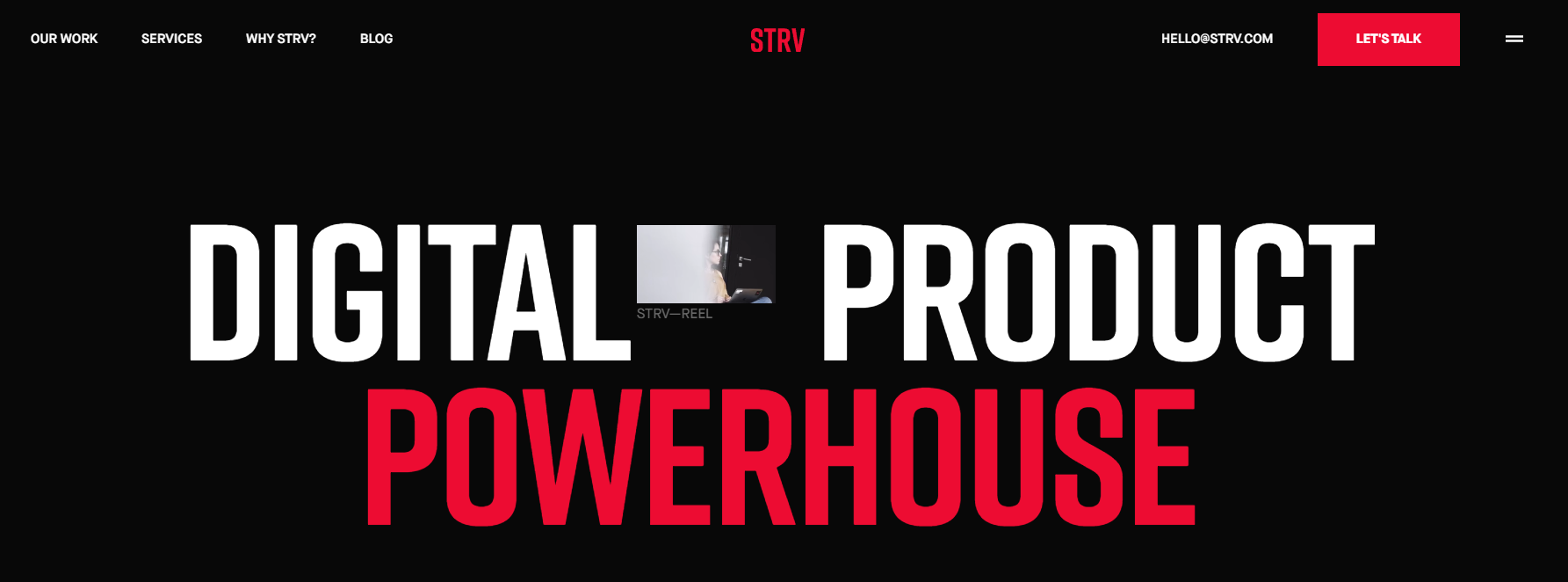
5. Fueled
Fueled is a technology consultancy and venture studio that builds award-winning mobile apps and websites. They operate at the intersection of strategy, design, and development, often working with high-growth startups and enterprise clients.
- Foundation Year: 2008
- Founder: Rameet Chawla, and Ryan Matzner
- Location: New York, USA / London, UK
- Services: App Development, Web Design, UI/UX, Digital Product Strategy.
- What Clients Appreciate: The key value for marketers is Fueled’s venture and strategy DNA. They don’t just think about features; they think about business models, market positioning, and competitive moats. Their strategic input can be invaluable for a first-time founder trying to carve out a niche in a crowded market.
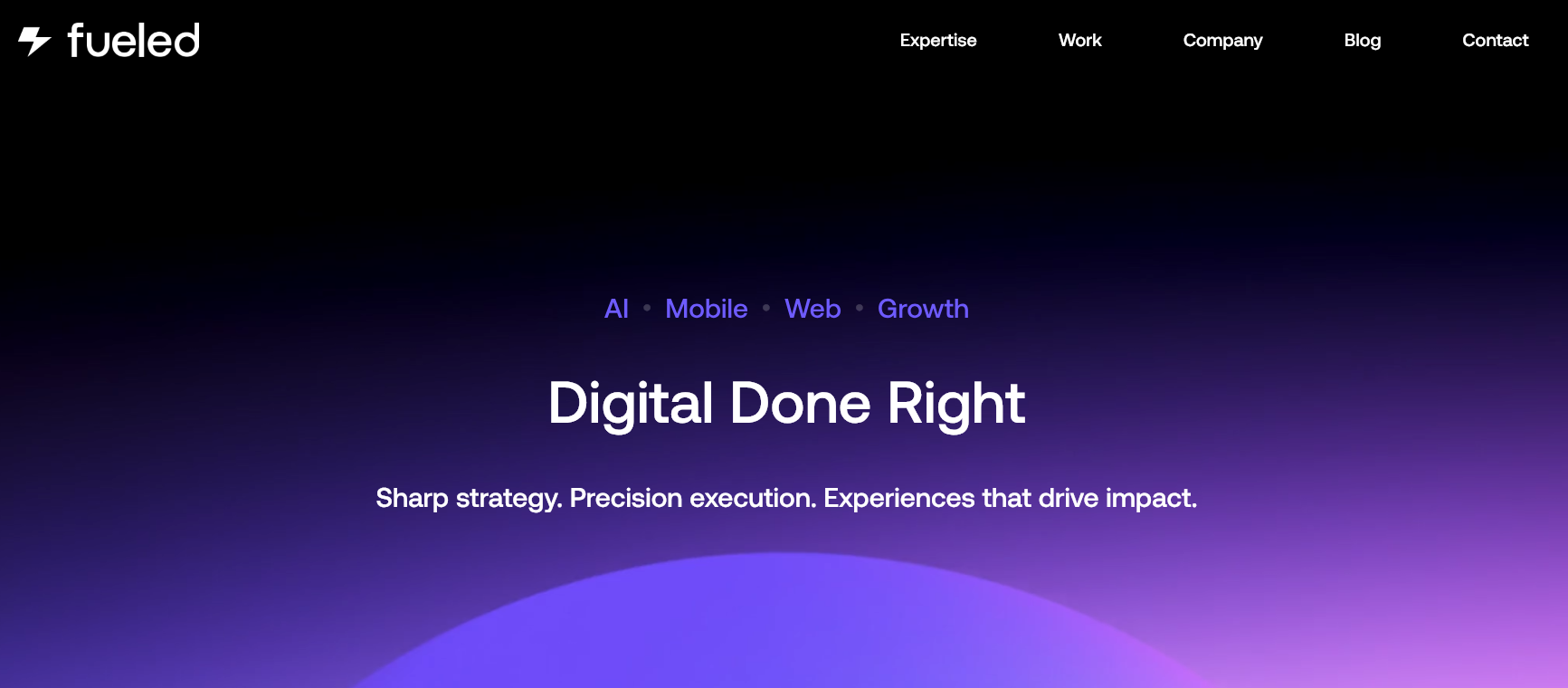
6. Highland
Highland is a digital product consultancy that focuses on “research-led design and development.” They put immense effort into understanding the end-user before building, ensuring the product solves a real, painful problem.
- Foundation Year: 1999
- Founder: Brian Sutherland
- Location: Chicago, USA
- Services: Customer Research, UX/UI Design, Custom Software Development, Product Strategy.
- What Clients Appreciate: For marketers, Highland’s emphasis on customer research is its superpower. They conduct in-depth user interviews and testing to build a deep empathy for the customer. This ensures the final product is built on a foundation of genuine user insight, dramatically increasing the chances of achieving product-market fit and reducing marketing waste on targeting the wrong audience.
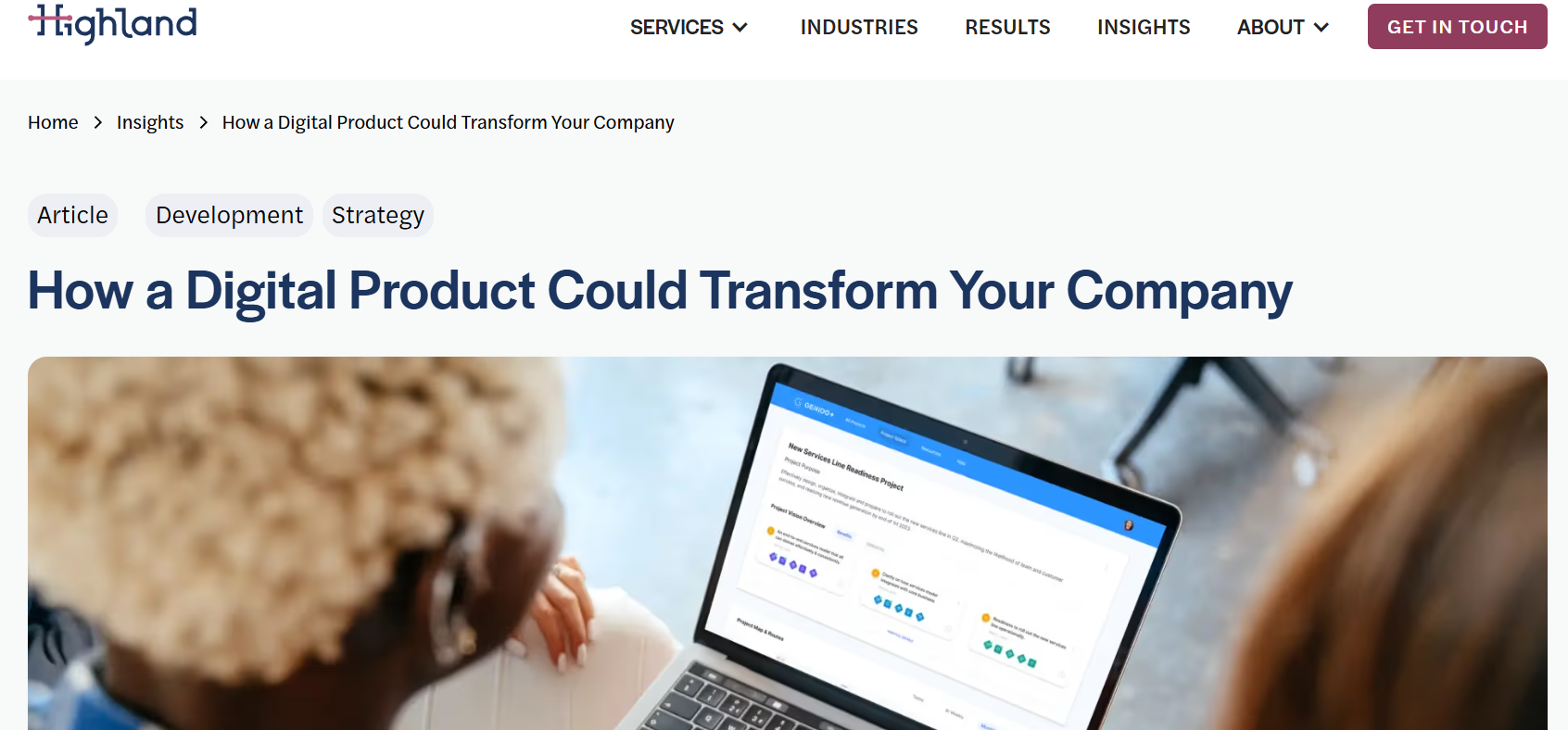
7. Cheesecake Labs
Cheesecake Labs is a software design and engineering partner that helps startups and established companies build successful tech products. They are known for their collaborative approach and have a strong track record of helping clients secure funding.
- Foundation Year: 2013
- Founder: Marcelo Gracietti
- Location: Florianópolis, Brazil / San Francisco, USA
- Services: Web & Mobile App Development, UI/UX Design, Product Strategy, Blockchain.
- What Clients Appreciate: Marketer-founders appreciate their transparent and collaborative process. They provide clear communication and work like a true partner, making clients feel involved and in control. Their expertise in building products that are “investor-ready” means they understand the importance of demonstrating traction, scalability, and a clear vision.

8. Altoros
Altoros is a professional software services provider with deep expertise in cloud-native applications, data analytics, and artificial intelligence. They are an excellent partner for data-heavy marketing technology products.
- Foundation Year: 2001
- Founder: Renat Khasanshyn
- Location: Pleasanton, CA, USA (Global delivery centers)
- Services: Cloud Application Development, Data Science & Analytics, AI & Machine Learning, MVP Development.
- What Clients Appreciate: A marketer building a MarTech platform like Maya’s would value Altoros’s profound expertise in data analytics and AI. They can build the sophisticated dashboards and reporting features needed to prove ROI to end-users. Their ability to handle complex data architectures ensures the product’s core value proposition is robust and reliable.

9. DockYard
DockYard is a digital product agency offering custom software, mobile, and web application development consulting. They are renowned for their expertise in Elixir and Phoenix, a tech stack known for building highly scalable, real-time applications.
- Foundation Year: 2010
- Founder: Brian Cardarella
- Location: Boston, USA (Fully Remote)
- Services: Web & Mobile Development, Product Design, Staff Augmentation, (Specialists in Elixir, Phoenix, and LiveView).
- What Clients Appreciate: Their technical specialization is their marketing advantage. For a product that needs to handle real-time interactions (like a social media tool or a live chat platform), DockYard’s expertise ensures unmatched performance and scalability. A fast, responsive product leads to higher user satisfaction and is a marketing asset in itself.
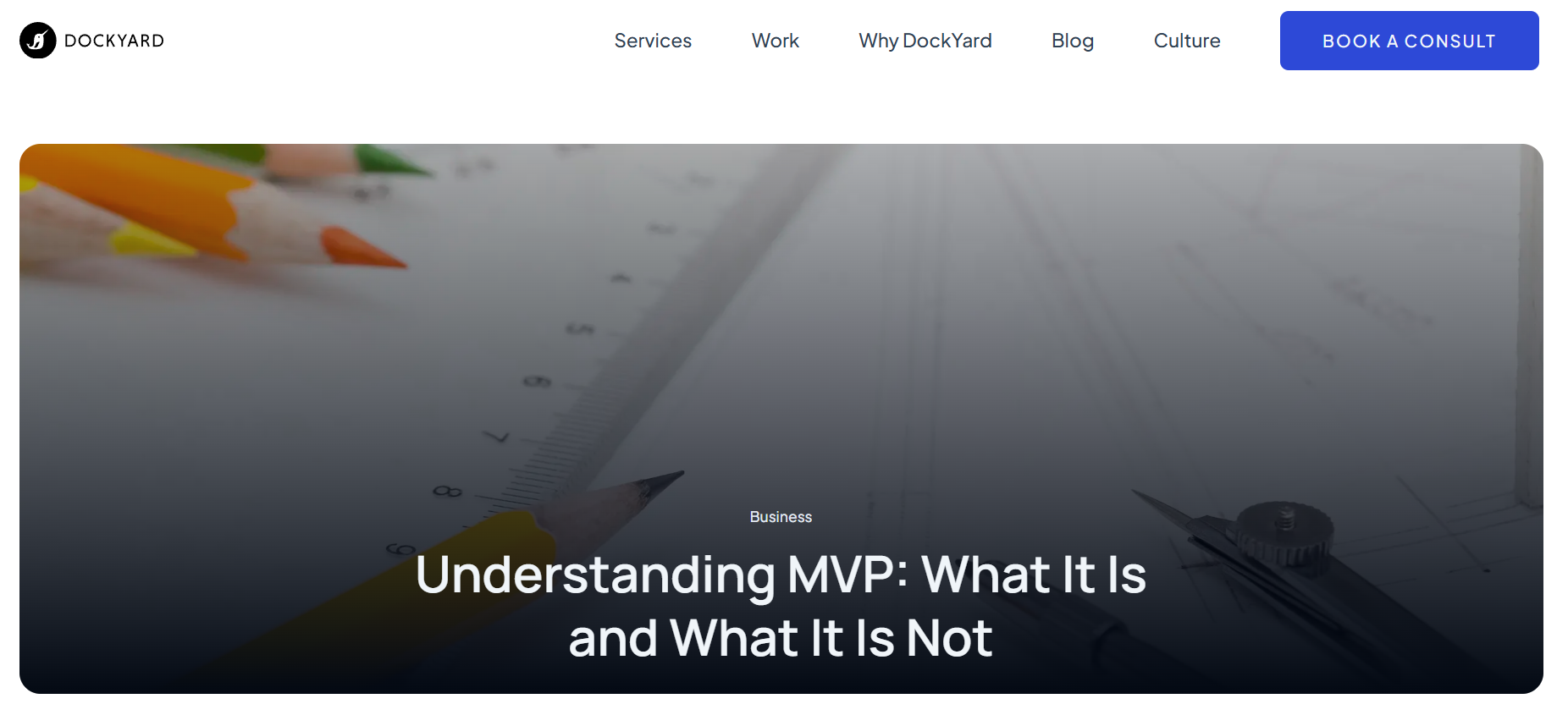
10. Credex Technology
Credex Technology is a custom software development company that partners with startups and enterprises to build cutting-edge digital products. They specialize in leveraging emerging technologies like AI and Blockchain to solve complex business challenges.
- Foundation Year: 2017
- Founders: Sumeet Jha, Pradeep Arya
- Location: Noida, India
- Services: Digital Product Engineering, Business Experience Transformation, Technology Innovation & Engineering, AI-Powered Customized Solutions, Custom Web & Mobile App Development, Salesforce Services, and IBM i (AS/400) Modernization.
- What Clients Appreciate: Clients value their commitment to credibility and constant innovation. With a 100% referential customer base, they are appreciated for their consulting-led approach and deep domain experience, which allows them to act as a dedicated and reliable technology partner.
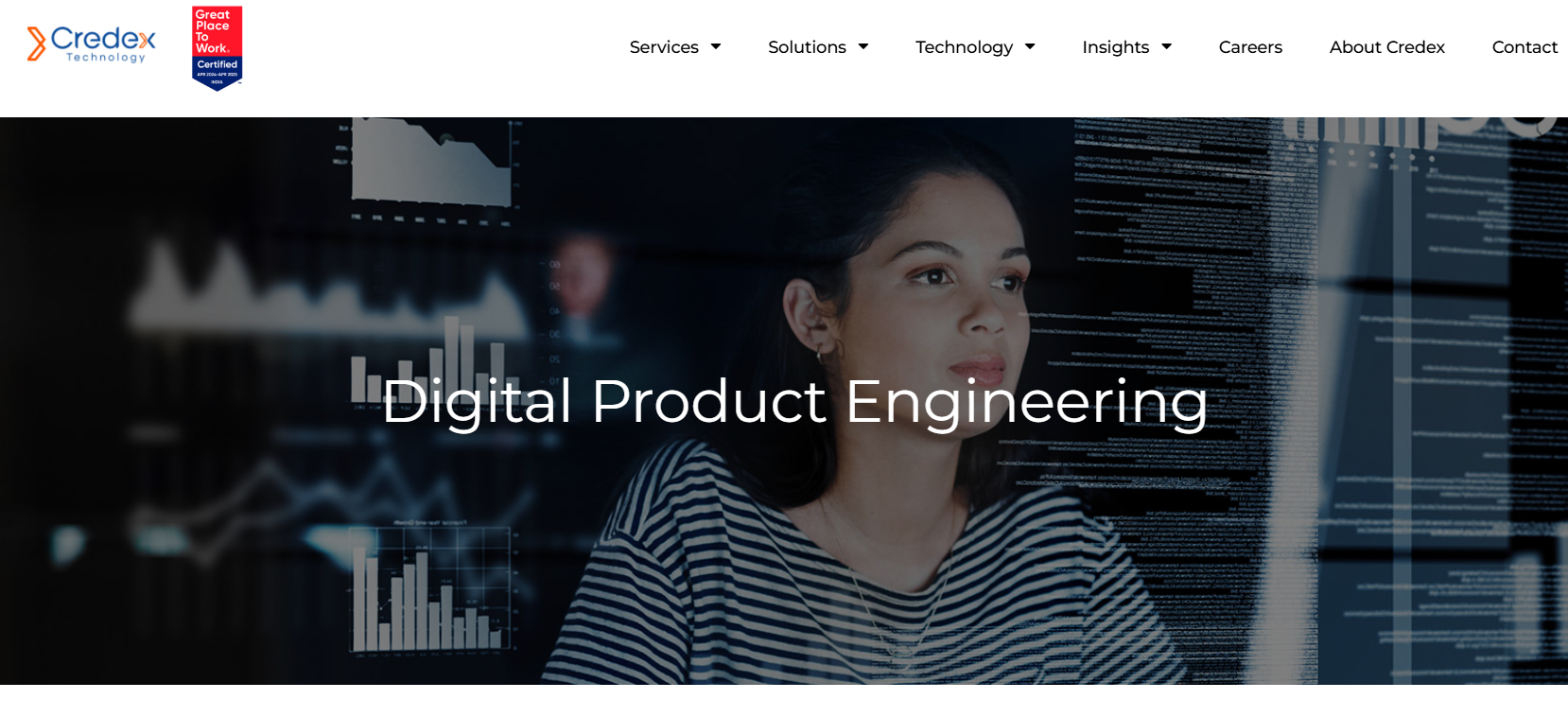
Conclusion: From Marketing Insight to Market Leader
In the end, Maya realized her idea for an influencer marketing platform wasn’t a software problem; it was a market validation challenge. Her greatest asset wasn’t her ability to write code, but her deep understanding of the customer’s pain point.
By choosing to build an MVP, she transformed her biggest perceived weakness (being non-technical) into her greatest strength. She focused on what she does best: understanding the market, defining the value proposition, and building a community. She found a technology partner who could translate that vision into a functional, scalable product.
The right development partner for a marketer-turned-founder isn’t just a vendor you hire to write code. They are your co-strategist, your technical translator, and the engineering engine for your marketing experiment. They understand that the goal isn’t just to launch an app, but to build a business. They measure their success not by lines of code written, but by the same metrics you do: user engagement, customer retention, and growth.
For marketers with a game-changing idea, the path forward is clear. Don’t let the technical challenges intimidate you. Reframe the problem. Embrace the MVP as your ultimate marketing campaign. And choose a partner who gets it.

